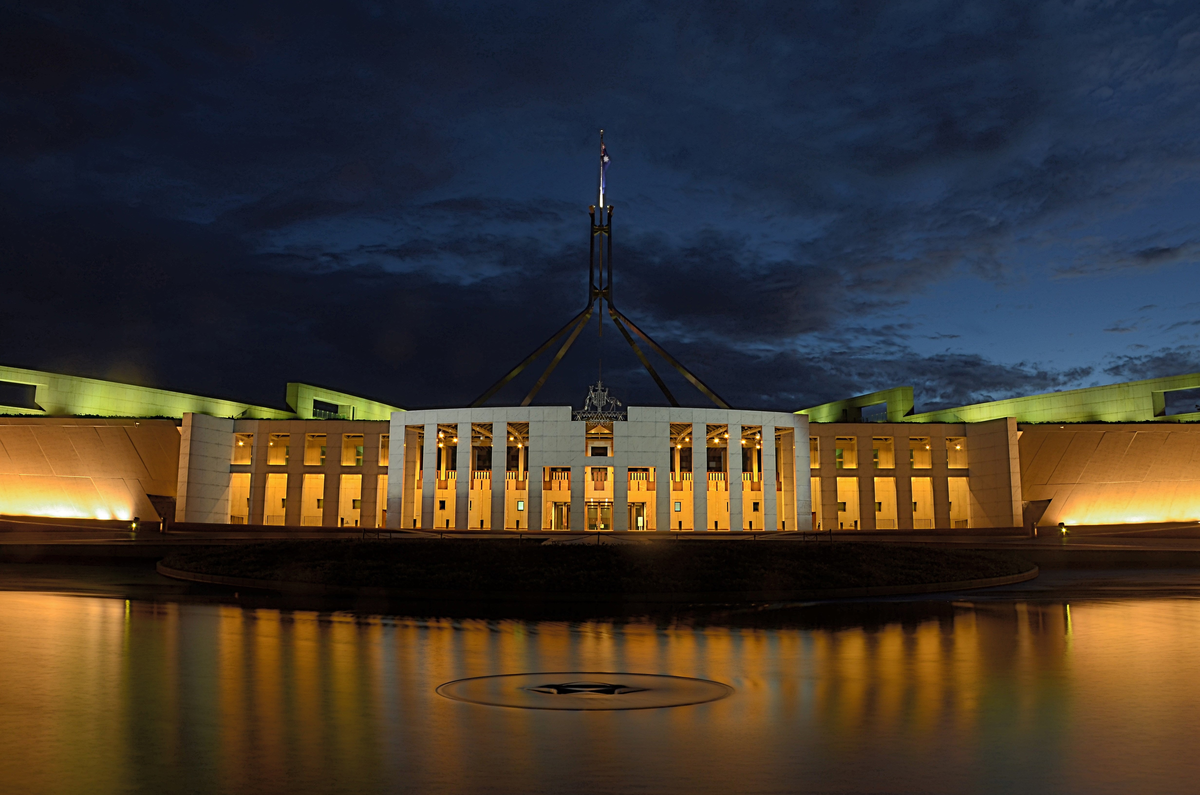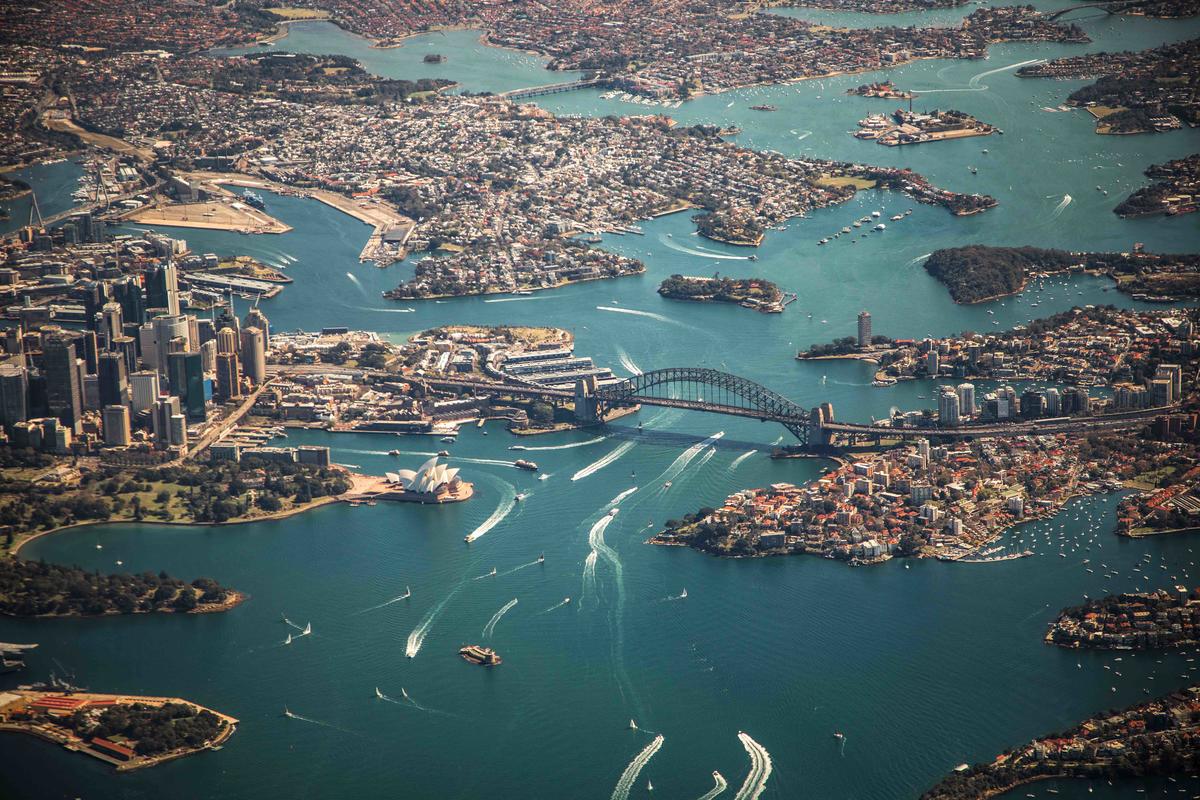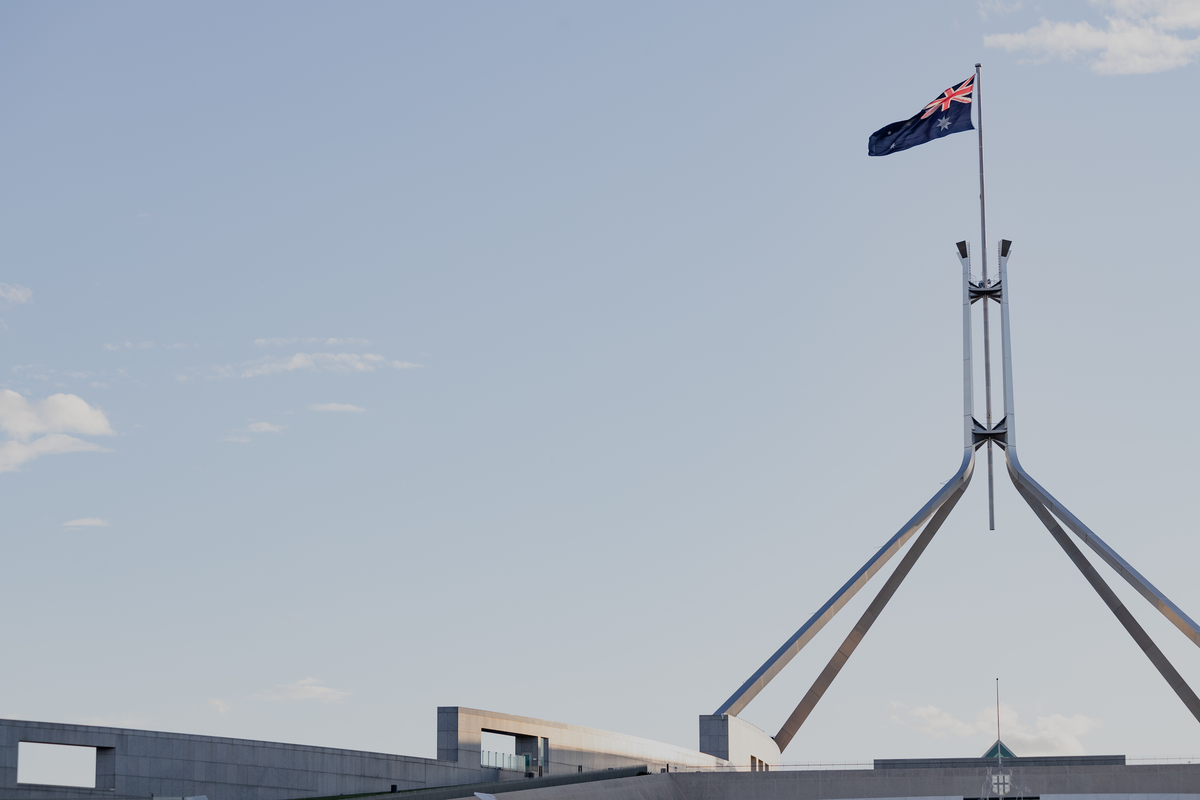Federal Budget Wrap 2024-2025
Federal Treasurer Jim Chalmers’ third federal budget delivered the Australian Labor Government’s second consecutive surplus, one that is largely domestically focused against a backdrop of ongoing inflation and cost-of-living pressures.
Chalmers said that the budget aims to balance the need to bring down inflation, while making the Australian economy more productive and dynamic through investment for the future.
The budget delivers tax cuts for all Australian taxpayers, including a significant cost-of-living relief package, provisions to increase wages for aged-care workers and nurses, power bill rebates for all Australians and an expanded parental leave package for households.
While this year’s budget arguably offers some positive news for individual Australians, the picture for business is mixed, with support measures for small business aimed at easing pressures, supporting growth and helping to level the playing field.
However, the budget also points to weak economic growth, a return to a budget deficit in 2025/26 and beyond and a weaker labour market. Concerns remain amongst business leaders about whether measures to tackle inflation are strong enough and they have cautioned that extra spending could contribute to a weakened budget position over the next four years (source: The Australian 15 May 2024).
Key items
Cost-of-living relief
| • Tax cuts for every taxpayer (13.6 million Australians). • Energy bill relief through a $300 rebate for all households from 1 July, with more rebates for one million eligible small businesses. • Wiping $3 billion in student debt for more than three million Australians. • $1.9 billion to boost the maximum rate of Commonwealth rental assistance by 10 per cent |
| A future made in Australia’ Energy transition |
• The budget aims to accelerate the growth of new industries by providing a $1.5 billion extension over seven years to the Australian Renewable Energy Agency’s industry building investments. • $519.1 million for the Future Drought Fund to support farmers and rural communities. |
| Small business | • $290 million to extend the $20,000 instant asset write-off for small businesses with an annual turnover below $10 million (around 4 million businesses). • $10.8 million to support the mental and financial wellbeing of small business owners. |
| Care economy | • $2.2 billion towards aged care, as well as provisions to increase award wages for aged care workers. • Wage increases for childcare and early educators. |
| Health | • Up to $4 billion for cheaper medicines, including freezing the maximum cost of Pharmaceutical Benefits Scheme (PBS) prescriptions for everyone. • Increasing funding for Medicare and some mental health services. |
| Housing | • $6.2 billion in new investments including public transport and infrastructure, with the ambition to build 1.2 million new homes. • $1 billion to states and territories to pay for roads, sewerage, energy, and water connections for new homes. • An additional $16.5 billion for new and existing infrastructure projects across Australia over the next 10 years. |
Initial reactions
Opposition: While the Coalition prepares to present its budget response on Thursday, the initial reaction from Opposition Leader Peter Dutton suggested Labor has made bad economic decisions: “Labor’s budget was a missed opportunity to help you at a time where you need help. You didn’t address our economic challenges or inspire confidence. It’s a budget that breaks promises rather than keeps them. A budget that weakens Australia’s financial position, rather than strengthens it and it’s a budget that adds to rather than alleviates your cost-of living pressures.”
ABC News: Opposition Leader Peter Dutton says Labor’s budget is a ‘missed opportunity’ to help Australians in a time of need, Brett Worthington and Nicholas McElroy.
Shadow Treasurer Angus Taylor suggested that while inflationary, it won’t oppose spending measures. It’s a “Band-Aid on a bullet wound,” saying: “When you have $4 of spending for every dollar of saving, you are not fighting the inflation dragon that so many Australians are suffering with.” … “You should be dealing with the source of the problem when inflation is raging. The government isn’t doing that because this budget is designed for an election and not a cost-of-living crisis.”
ABC 7:30 Report
Business: Bran Black, CEO of the Business Council of Australia (BCA), praised some initiatives to unlock capital for green investments, but cautioned whether the approach to spending would reduce inflation as desired. He said; “Bill relief is always welcome for low-income households struggling with the cost of living…However, we remain concerned about the potential inflationary impact of a catch-all approach.”
His comments included concern that the government had failed to set adequate fiscal guardrails on spending, with $20 billion in extra spending measures frontloaded over the next two years and the bottom line deteriorating – with both increasing the risk of higher inflation. He called for the Future Made in Australia Act to also include “serious reform of our tax system, significant productivity and investment-driving measures, and regulatory and planning reform.” More positively, he also said: “The Government’s commitment to reforming Australia’s skills system is welcomed by business.”
The Australian Financial Review, Power bill relief, tax cuts in a budget ‘for every Australian’: Chalmers Federal Budget 2024: Labor’s budget seeks to ‘buy a rate cut’ ahead of election, says Peter Dutton | The Australian https://www.bca.com.au/budget_takes_positive_steps_on_competitiveness_with_more_to_do
Andrew McKellar, Chief Executive of The Australian Chamber of Commerce and Industry commented that the impact of the budget on inflation is still unclear, but it was “difficult to accept the assertion that it materially reduces underlying cost or price pressures…The projection of a surplus for the current financial year is positive, however, over the next four years, there appears to be little prospect of substantial progress towards further budget repair.”
Federal Budget 2024: Labor’s budget seeks to ‘buy a rate cut’ ahead of election, says Peter Dutton | The Australian
Rob Scott, CEO of Wesfarmers, welcomed the budget’s $7 billion in production tax credits for critical minerals processing, saying the move was; “A smart, targeted use of the tax system to solve big problems, leverage our competitive advantages and enhance Australia’s prosperity”. Scott said the incentives would encourage investment, support job creation and productivity, while pushing for more funding for carbon capture and storage.
The Australian Financial Review, Power bill relief, tax cuts in a budget ‘for every Australian’: Chalmers
Retail: Paul Zahra, CEO of the Australian Retailers Association, welcomed measures to address the cost-of-living, but said more needs to be done to support small business, fund employment pathways for retail and incentivise the transition to a circular economy. He said; “We welcome measures that provide cost-of-living relief…which will have a flow on impact on retail. Australians are desperate for financial relief, and so too are retailers. Business costs remain dangerously high without productivity improvements and discretionary spending is softening significantly in the wake of tightening household budgets.”
‘Retailers welcome cost-of-living relief in Federal Budget, concerns remain around support for small businesses’ – Australian Retailers Association
Health sector: Despite significant funding of initiatives in this year’s budget such as strengthening Medicare and accessibility to health services and making medicine more affordable to ease the cost-of-living pressures, Labor’s carriage of the health portfolio has been met with uproar. Dr Nicole Higgins, the president of the Royal Australian College of General Practitioners (RACGP), has slammed the budget saying; “At a time when we’re trying to strengthen Medicare and support our patients through a cost-of-living crisis … this budget has dropped the ball.” The RACGP says the budget offers “little to no relief” for patients and threatens to undo Medicare improvements. News GP, Federal Budget 2024-25 ‘dropped the ball’: RACGP Professor Steve Robson, Australian Medical Association President, was disappointed by the lack of funding to reform general practice, reduce surgery wait times and improve access and affordability for patients. He said; “More urgent care clinics is not a long-term strategic solution, and the government keeps looking to fund more of them without proper evaluation of their impact. What we need is reform that enables general practice to deliver the primary care that our patients need.”
‘Budget a missed opportunity to tackle health system issues’- Australian Medical Association
In its formal response to the budget, Mental Health Australia CEO Carolyn Nikoloski said the organisation is disappointed that the national outcry for more mental health support has not been fully funded in the 2024- 2025 Federal Budget. She said: “Australia needs urgent mental health reform to address the crisis we’re facing…Why haven’t we seen investment that matches the level of need in the 2024-2025 Federal Budget?”
‘Funding for mental health falls short in Federal Budget’ – Mental Health Australia
Energy sector: John Grimes, Smart Energy Council gave the budget an ‘A,’ saying it was a “red letter day” for the energy sector with the substantial investment in clean energy initiatives. He claimed the budget will change the future of Australia, adding Australia will become an ‘exporter of climate solutions.” The Guardian, Jim Chalmers budget speech – as it happened
Housing sector: Denita Wawn, CEO of the Master Builders Association, commended the additional $6.2 billion in new housing measures. She said; “The federal budget has finally recognised the importance of a holistic, cross-portfolio approach to solving the housing crisis and made some inroads.”
The Australian Financial Review, Power bill relief, tax cuts in a budget ‘for every Australian’: Chalmers
Crossbench: Senator Jacqui Lambie: Senator Jackie Lambie’s initial response on ABC News last night included criticism of the Australian Government, suggesting it was “too lazy to do means testing” in reference to the $300 bill rebate for all Australian households. She called out the absence of any investment in youth crime, fueled by drug and alcohol issues. Senator Lambie was also critical on the subject of the structural return to a budget deficit in the coming years, calling out a lack of detail regarding exactly where funding is going or further details on what she called the indigenous jobs program.
ABC News TV
Senator David Pocock: Appearing on ABC’s coverage of the budget, Senator David Pocock echoed Senator Lambie’s comments on the $300 power bill rebate, saying to not means test it is “frankly ridiculous”. He said that with three million Australians living in poverty, giving those with six-figure salaries $300 “doesn’t make sense”. Senator Pocock supported investments in critical minerals but said the budget missed the opportunity to better support the manufacturing of things like solar cells here in Australia. He said he was also disappointed that the budget omitted household electrification – citing the “huge opportunity” to spur investment and support local companies in that space and boost exports.
ABC News TV
Winners and losers
The government's second budget in less than a year has been announced, revealing winners and losers and highlighting the need for prioritising vulnerable Australians to balance the books. The budget is expected to bring a small surplus of around $4bn this year, ending a 15-year-long deficit. However, deficits are predicted for the next four years with many Australians facing financial struggles.
Winners | Losers |
Green innovation One of the integral components of this year’s budget is the Australian Government’s ambition to turn Australia into a renewable energy superpower. The Australian Government has allocated $6.7 billion in production tax incentives to produce renewable hydrogen over the next decade and is investing $8.8 billion to add more value to Australia’s resources and strengthen critical minerals supply chains over the next ten years. It is looking to encourage more Australians to take up jobs in the sector with $1.1 billion to reform higher education and deliver the skilled work force needed to accelerate this transition. | Universities and International Students Placements for international students will now be capped. Universities will only be able to take a certain number of students, and any they wish to take above this will be decided based on a formula accounting for how much additional student housing the institution has built. |
| Superannuation:From July 2026, employers will pay super at payday rather than quarterly, improving retirement incomes for young workers. | Pharmacists:Pharmacies will incur an additional cost of around $170,000 per year as patients can now buy 60 days' worth of common medicines for chronic conditions instead of 30 days. |
| Medicare and health:A $3.5 billion, five-year package will encourage doctors to bulk-bill. Money will also be used for modernising My Health Record, lung cancer screening, and cheaper common medicines. | Smokers and vapers:Smokers will have a 5 per cent annual tax increase for three years, while vapers will have limited flavor choices, generating $3.3 billion extra revenue with the government also allocating $63 million towards prevention and imposing new regulations on vape purchases. |
| Small business:A tax discount of up to $20,000 will be offered to small businesses with an annual turnover under $50 million to incentivise more energy-efficient practices, expecting to benefit up to 3.8 million businesses. | Immigrants:Visa fees for temporary and permanent residency will go up by 6 per cent, generating $660 million to reduce immigration backlogs, with short-stay visa applicants facing a 21 per cent fee increase, while migration is predicted to return to normal levels in 2 years. |
| Defence:Australia's defence spending overall is increasing with an additional $11+ billion over the next four years for naval programs and improving our cyber and sovereign capabilities. | Truckers:The government plans to increase the heavy vehicle road user charge to 32.4 cents per liter of diesel by 2025-26 saving $1.1 billion over four years which will go towards road maintenance and repairs. |
| Indigenous Australians:$1.9 billion will be spent over five years to enhance Indigenous people's lives and economic prospects, and $360 million will be allocated for the Indigenous Voice to Parliament referendum. | Scammers:The government will spend $86.5 million over four years to fight scams and online fraud, including $58 million for a National Anti-Scam Centre and $17.6 million to dismantle phishing websites. |
| Pacific region:A $1.4 billion boost will improve law enforcement and security infrastructure in the Pacific region, with $370 million to expand the Pacific Australia Labour Mobility scheme. | Multinationals:The government’s implementation of pillar two of the OECD/G20 multilateral agreement on global tax is part of a worldwide shake-up of company tax involving more than 135 countries. The “Pillar Two” taxation reforms will bring in $370 million over the five years from 1 January 2024. |




